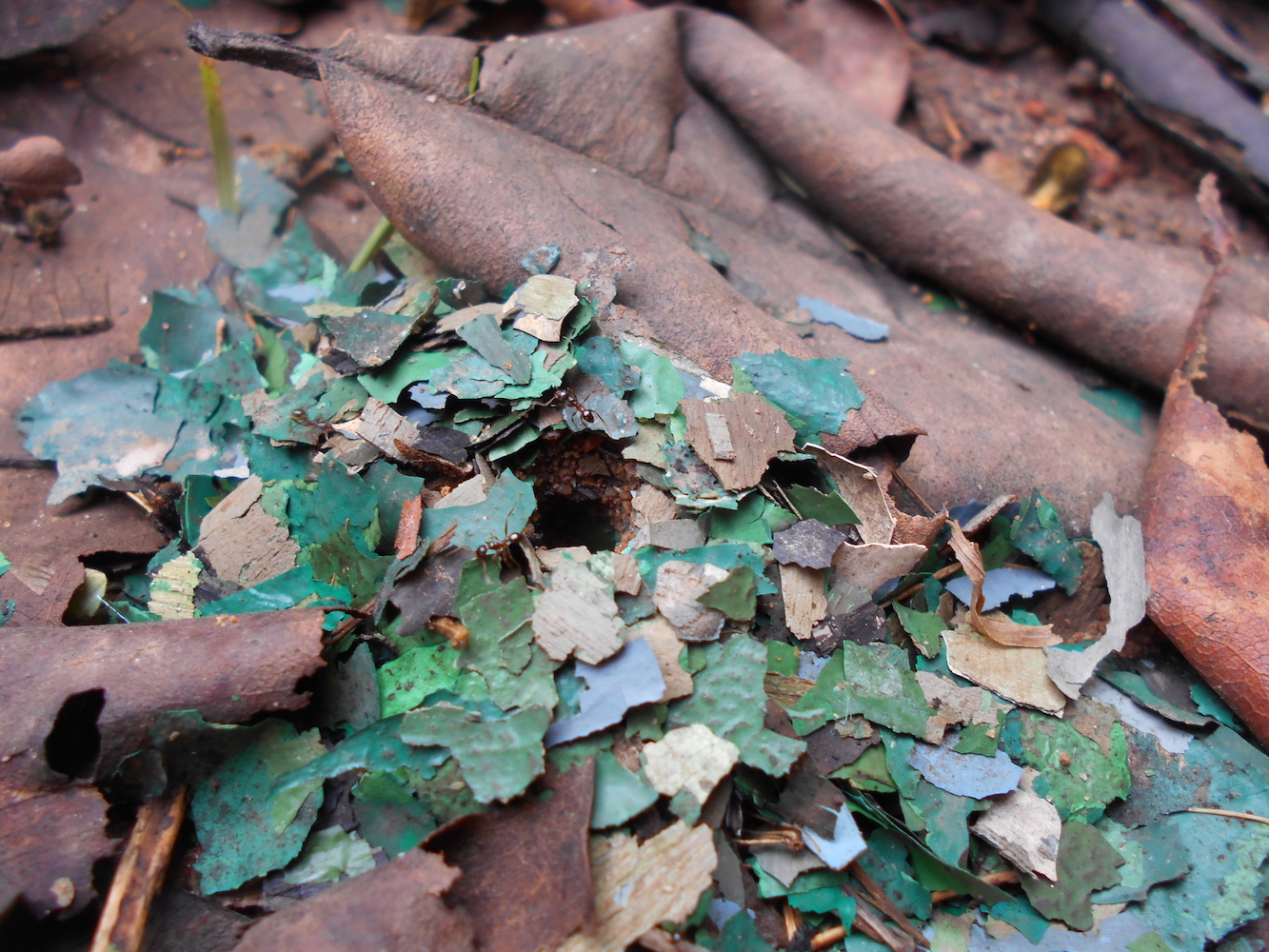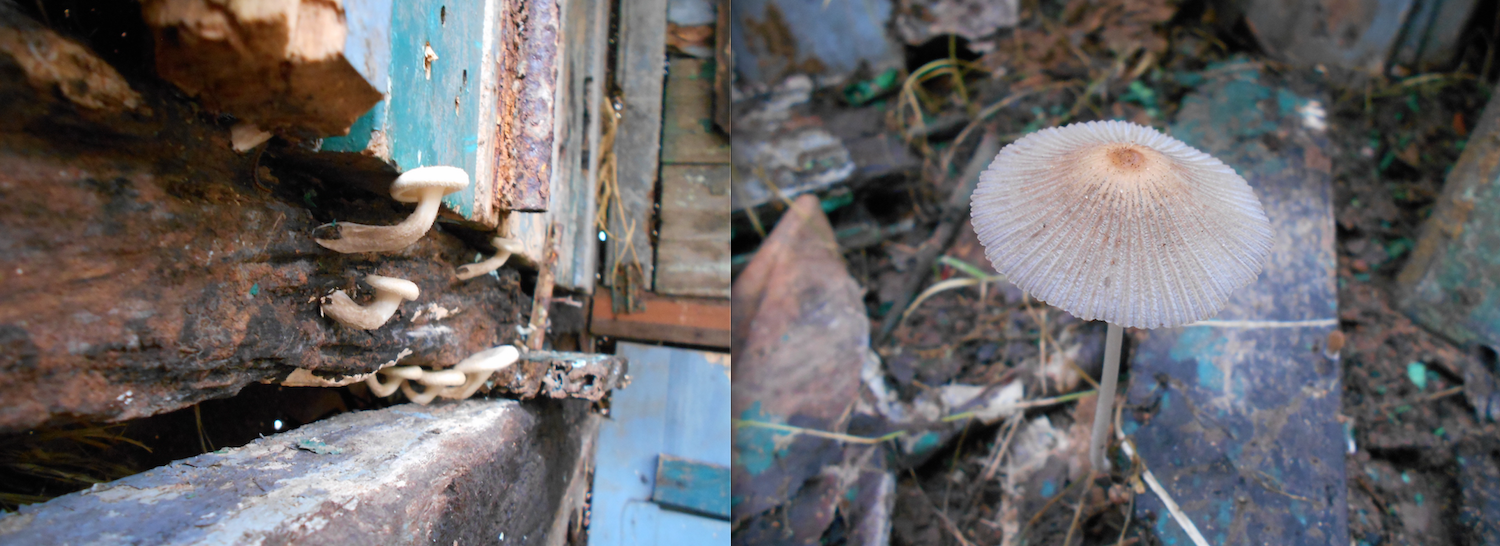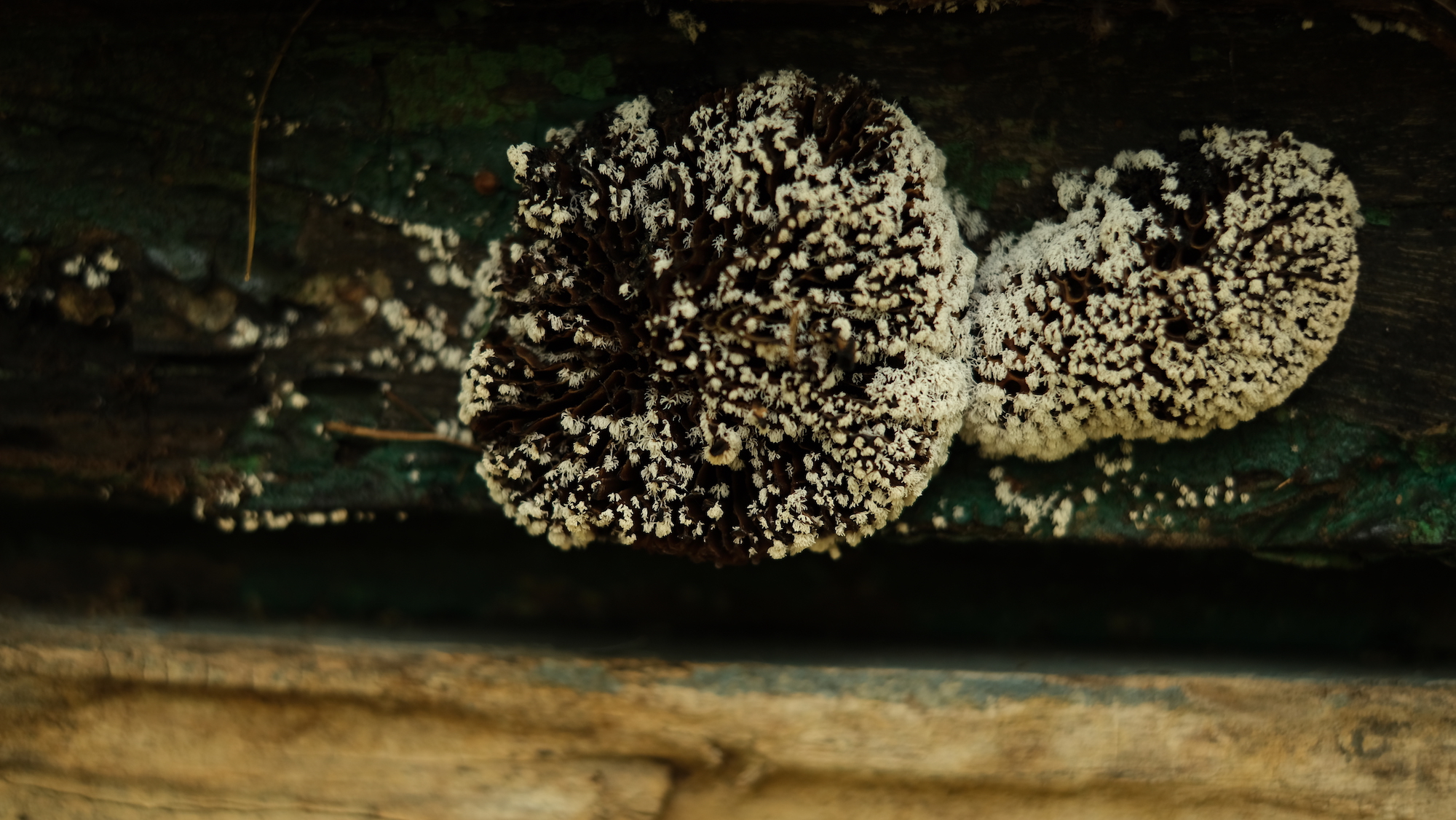‘Where the One Ends, and the Other Begins’ | Santiniketan, India
Letting nature interact with man made material, watching how the interactions evolve and what emerges. Letting nature take over. Indian artist Maksud Ali Mondal shares Part II of his NATURE project.

The project ‘Where the One Ends, and the Other Begins’, created on the campus of Visva-Bharati University, in Santiniketan, was a durational engagement with nature by observing growing and transforming.

I collected discarded pieces and planks of wood from old buildings, which were already conditioned by time. In the old days those wooden pieces shared space with the glorious past, but later they were discarded and replaced with more durable materials, like steel, plastic and fiber.
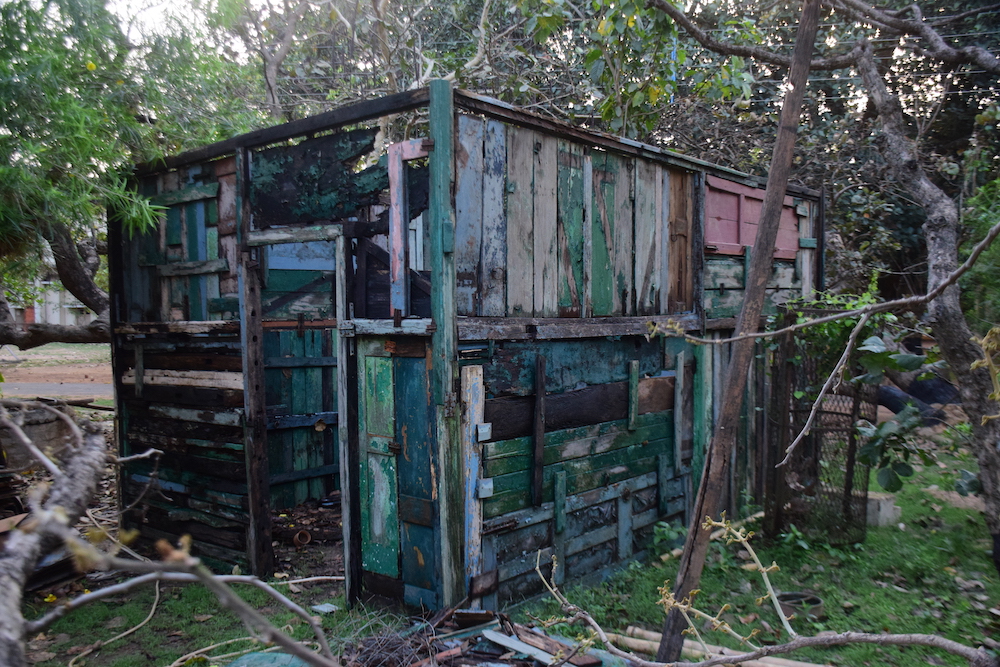
With those discarded wooden pieces I built a space and gave the particular conditions required for the continuation of the process of nature. It was (15 feet long, 12 feet width and 12 feet high), on the campus of Kala Bavana, the Art Department of the University. This piece of architecture, so built, was then holding a collection of debris of old memories that were here acquiring a new identity.
This space was a built environment where the activities of nature were allowed to happen freely. Here nature extended to bring in micro life to the site, growing different life forms in the work over a period of time, thus allowing for materials to interact at the level of minute life.
The fallen leaves could decompose; insects, small plants and fungi could grow freely into the site. The installation itself participated in the decomposing process of nature.

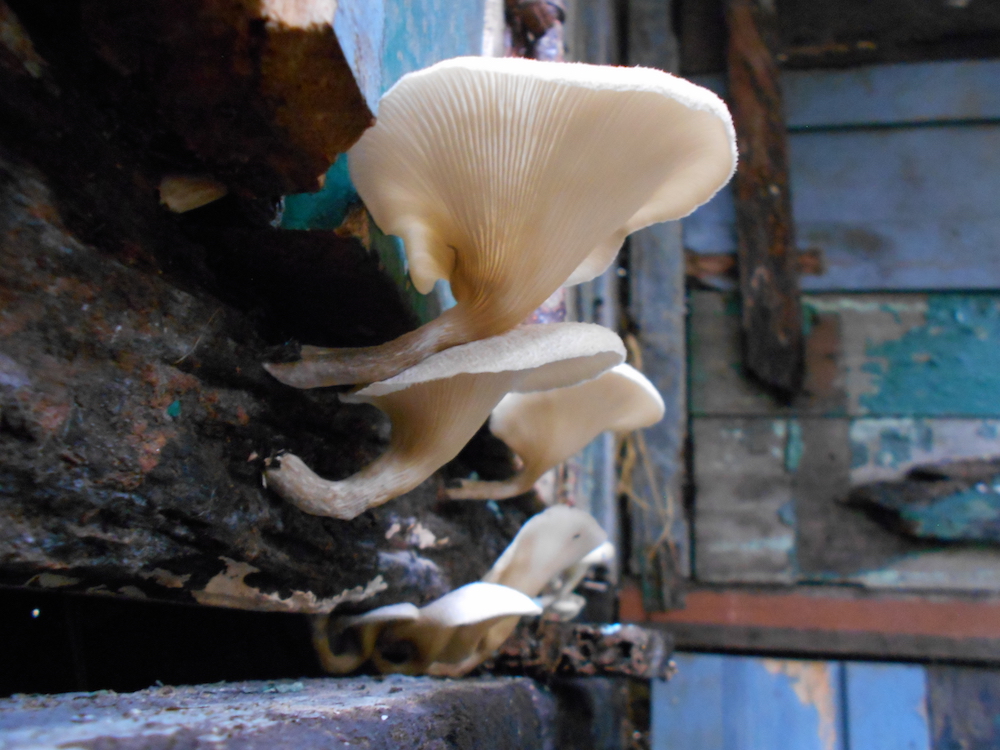
We always take care of architectural spaces by maintaining them, and nowadays we prevent the decaying process of natural materials by using synthetic and more durable components. Though different architectural spaces and constructions have different functions, people hardly ever allow nature to interfere with them.
As the materials are influenced by the process of micro living organisms, I witnessed here the extent of what happens in a space by using these materials.
In this project I tried to break with the idea of protecting our spaces by giving nature full control to rush in and out of the space I had built to allow maximum changes. The viewer could enter inside the space and witness all the changes.
The interaction between the construction and nature realized here can be read at different levels of literal as well as metaphoric meanings.
Medium: Discarded wooden door, window and wooden parts
You can see Part I of the project here.
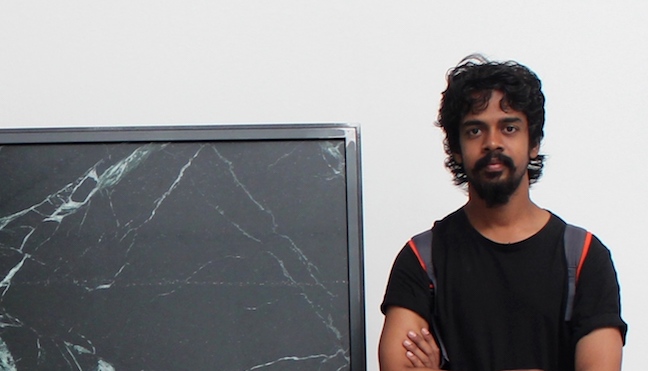
Maksud Ali Mondal was born in Bankura, West Bengal. He earned his BFA and MFA from the department of painting, Kala- Bhavana, Santiniketan in 2019 and studied a semester at the Royal Academy of Art, The Hague, Netherlands in 2016. He deals with biological and feral life in the current environment by observing growth and transformation over a period of time interacting with the materials.
His site-specific installation "Nature Unconditioned”, got the international award in the Kochi- Muziris Students' Biennale, 2019. He is the recipient of the national scholarship from the Ministry of Culture, The Government of India 2018. He participated in an international residency supported by Feudo Maccari, in Sicily, Italy 2018, as well as numerous group exhibitions in India and the Serendipity Art Festival collaboration with the Foundation of Indian Contemporary Art, Goa 2019.
His recent works are deeply concerned critically and creatively with the ecological debates and crisis that surround us today. Maksud currently lives in Santiniketan.
